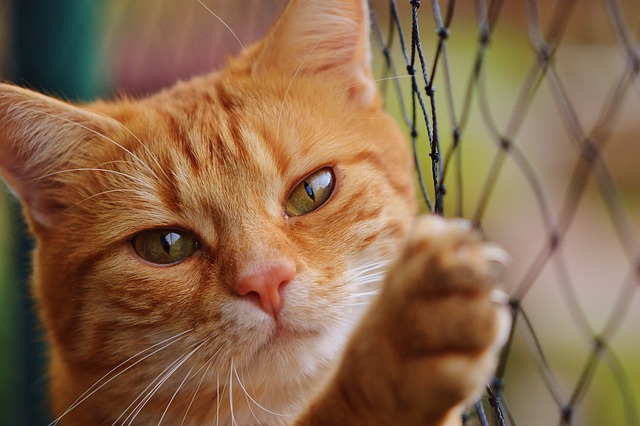Introduction: Cat owners are no strangers to the peculiar and enigmatic behaviors of their feline companions. One such behavior that often leaves us scratching our heads is when cats fixate on seemingly empty spaces. If you’ve ever pondered this mystifying cat conduct, you’re in the right place. In this article, we’ll unravel six common reasons behind why cats engage in this intriguing behavior, shedding light on whether it’s normal and safe.
- Unique Vision Perspective: Cats perceive the world in a markedly different way than humans. Their exceptional night vision, enabled by an abundance of rod cells in their retinas, allows them to discern low light and track subtle movements imperceptible to us. This heightened visual acuity may lead them to appear as if they’re gazing at nothing, when in reality, they’re focused on minuscule creatures or movements.
- Acute Sense of Hearing: Cats possess highly sensitive ears, capable of detecting frequencies beyond human auditory range. This heightened sensitivity could prompt them to fixate on subtle noises, even those we may find barely perceptible. For instance, a faint buzzing from an appliance might be significantly more pronounced to a cat, holding their attention.
- Catnip-Induced Tranquility: Catnip, containing the chemical nepetalactone, induces a state of calm and relaxation in cats. This sensory alteration may lead to prolonged periods of focused stillness, akin to a tranquilized individual fixated on a point of interest.
- Episodic Memory: Studies suggest that cats possess episodic memory, allowing them to recall specific past events. This capacity for recollection could manifest as a cat gazing into space, potentially reflecting on remembered occurrences or daydreaming.
- Focal Seizures: While a distressing thought, cats can experience focal seizures originating in the cerebral cortex, causing them to appear lost in thought. If accompanied by symptoms like drooling or lack of coordination, prompt veterinary attention is essential.
- Ever-Curious Nature: Curiosity is woven into the fabric of a cat’s being. They can be captivated by the smallest of stimuli, such as a minuscule spider or imperceptible dust particles, sustaining their focus for extended durations.
Is Staring at the Wall a Concern? In most cases, a cat’s fixation on a wall is benign. However, it’s vital to differentiate this behavior from “head pressing,” which could signal a neurological issue. If any concerning symptoms arise, seeking prompt veterinary care is advised.
Addressing Supernatural Speculations: While some may attribute a cat’s intense focus to supernatural occurrences, it’s important to recognize the various plausible explanations outlined above. Beliefs in the paranormal are personal, but understanding feline behavior can offer alternative perspectives.
Conclusion: Armed with a deeper understanding of why cats engage in this behavior, you can navigate their mysterious world with confidence. While it’s generally innocuous, vigilance for signs of potential medical issues is always prudent. Trusting your instincts as a pet owner and seeking professional advice when needed ensures your feline friend receives the best care possible.
and seeking professional advice when needed ensures your feline friend receives the best care possible.



